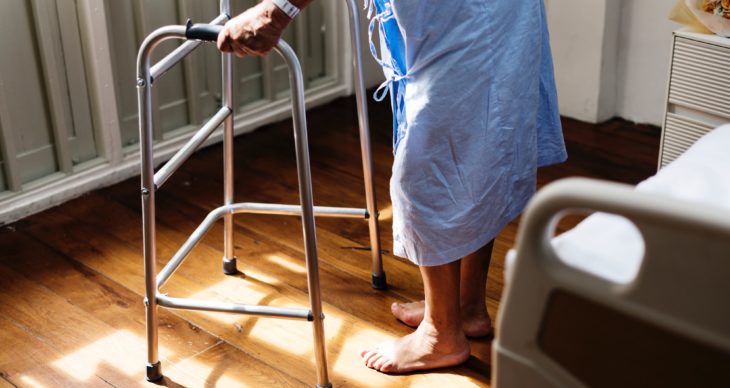Caring for an elderly loved one can be a very rewarding experience. You get the confidence of knowing your aging parent is safe, spend more quality time with them, and have less stress about them becoming the victim of a senior citizen scam in their Golden Years.
But senior caretaking is also serious business and you need to do your research to make sure your elderly loved one is as happy and healthy as possible. That includes knowing what the most common senior medical emergencies are. Luckily, we’re here to help!
Keep reading to discover when you need to take the elderly to the emergency room…
The Top 9 Senior Citizen Medical Emergencies
Whether you’re caring for your elderly family member yourself or working with an agency, you need to know that heart attacks, strokes, and falls aren’t the only reason that seniors need emergency medical care. And some of the following causes for concern just might surprise you.
1. Urinary Complaints
This might not seem like a medical emergency but the American Journal of Clinical Nutrition reported that more than 30% of senior citizens were found to be frighteningly dehydrated on a regular basis. The symptoms of a urinary tract infection (UTI) could be an indicator that your aging parent is dangerously dehydrated.
If your elderly loved one complains of trouble urinating, feeling as if they’re not passing enough urine, or any has pain or discomfort when urinating, you should make an appointment with their doctor or take them to the ER if it’s after hours or the problem seems too severe to wait.
2. Abdominal Discomfort
Has your aging parent been complaining about stomach pain? Abdominal issues can be caused by something as simple as gas or indigestion. But they can also mean much more serious causes for concern like a digestive disease, malnutrition, or even varying types of cancer.
If a senior citizen you care about is regularly mentioning stomach issues or has sudden sharp pains in the abdominal area, you should take them to visit their physician or to the local emergency room for testing and treatment.
3. Adverse Medication Effects
Most senior citizens are on one type of medication or another, which greatly increases the chances of them having an adverse reaction to new meds or even overdosing on medication they’ve been taking for years. Your best bet for the safety of your elderly loved one, you should monitor their medication carefully, or even look into a medication reminder service.
4. Difficulty Breathing
Have you started to notice your aging parent is wheezing or having shallow breathing? There are many types of serious medical concerns that present as shortness of breath, including COPD (chronic obstructive pulmonary disease), bronchitis, or emphysema.
If your elderly loved one is struggling to take a deep breath or has begun wheezing during physical activity, you should have them seen by a doctor or take them to the ER if there’s a sudden onset of respiratory concerns.
5. Chronic Coughing
Difficulty breathing may or may not be accompanied by a chronic cough that can cause you to be concerned about your elderly parent. Coughing can be related to pneumonia, the common cold, or more serious medical issues like heart disease. If your aging parent suddenly develops a cough of any kind, they should be examined by a doctor immediately.
6. Painful Joints
Back or joint pain is something that commonly brings senior citizens to the emergency room, due to accidental injuries, a spinal disorder, or an inflammatory medical condition like arthritis. If your aging parent is feeling pain in the neck, back, or finger joints, you should take them to the ER for medical management and diagnosis.
7. Tightness in the Chest
Chest pain is one of the scariest reasons that older adults end up seeking emergency medical care. Tightness in the chest can be caused by a wide variety of medical conditions, including everything from respiratory infections or gastrointestinal problems to blood clots or heart attacks. If your elderly loved one is experiencing any type of tightness or pain in their chest, you should take them to the ER immediately.
8. Loss of Speech
Did you know that strokes are the third leading cause of death in the United States? This frightening statistic makes recognizing the symptoms of a stroke in your aging parent all the more important. If you notice a loss of speech, confusion, or numbness in the fingers in your loved one, you should get them to the ER as soon as possible.
9. Acute Injuries
It might seem fairly obvious that an injury resulting from an accident is a good reason to head to the ER but many older adults will try to write them off in an effort to avoid going to the hospital. If your aging parent falls or is in a traffic accident, your safest bet is to take them to the nearest emergency room to get looked over, just in case.
How to Keep Senior Citizens Safe
Now that you’ve familiarized yourself with the most common senior medical emergencies in an effort to make sure your elderly loved one stays safe and happy in their own home, you might want to take a look at the best medical alert systems for seniors to help give you even more peace of mind.
With a top-rated medical alarm in your aging parent’s home, you’ll get the confidence of knowing they’re safe from falls or other accidents, and that expert assistance is just the push of a button away when they need it. And your loved one will get to stay in the home they adore!
